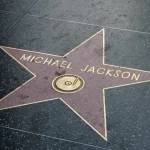Michael Jackson’s Influence on the Music Industry: A Comprehensive Look
Michael Jackson, often hailed as the “King of Pop,” left an indelible mark on the music industry. His influence extended beyond his chart-topping hits, shaping the landscape of music, dance, and pop culture. This comprehensive look delves into the multifaceted impact Michael Jackson had on the music industry, exploring his innovations, legacy, and the lessons modern artists can learn from his extraordinary career.
The Early Years: A Star is Born
Michael Jackson’s journey began with his entry into the music scene as a member of the Jackson 5. Formed in 1964, the group quickly rose to fame with hits like “I Want You Back” and “ABC,” showcasing Michael’s incredible talent even at a young age. These early years set the stage for his solo career, positioning him as a prodigious talent with potential beyond measure.
Breaking Records and Redefining Pop Music
Jackson’s 1982 album Thriller remains a cornerstone of his career and the music industry as a whole. With over 66 million copies sold worldwide, it holds the title of the best-selling album of all time. The album’s success can be attributed to its innovative blend of pop, rock, and funk, as well as its groundbreaking music videos.
Jackson’s ability to blend genres expanded the boundaries of pop music, creating a sound that appealed to diverse audiences. His collaboration with legendary producer Quincy Jones played a pivotal role in crafting this unique sound that continues to influence artists today.
Revolutionizing Music Videos: A Visual Pioneer
Michael Jackson was not just a musical innovator; he was also a visual pioneer. The music video for “Thriller” is considered one of the greatest of all time, blending music and cinema in a way that had never been done before. Its 14-minute length and narrative structure set a new standard for music videos, leading to the rise of MTV and the visual music era.
His other iconic music videos, such as “Beat It” and “Billie Jean,” further cemented his status as a visual artist. Jackson’s videos were not mere promotional tools but artistic expressions that enhanced the storytelling of his music. Artists like Beyoncé and Lady Gaga have cited Jackson’s music videos as a significant influence in their own visual storytelling.
Impact on Dance: The Moonwalk and Beyond
One cannot discuss Michael Jackson’s influence without mentioning his impact on dance. The moonwalk, first performed during a live television broadcast of “Motown 25: Yesterday, Today, Forever,” became one of his signature moves. Jackson’s dance style combined elements of street dance, jazz, and pop, creating routines that were both technically impressive and visually captivating.
His choreography has inspired countless artists and dance enthusiasts worldwide. Dance groups and performers continue to emulate his style, with tributes appearing in various dance competitions and performances. His contribution to dance has solidified his legacy as a master of performance art.
Social and Cultural Influence: More Than Just Music
Michael Jackson was more than just a musician; he was a cultural icon whose influence extended into social and cultural spheres. His music often carried messages of unity, peace, and social change. Songs like “We Are the World,” co-written with Lionel Richie, raised millions for humanitarian aid in Africa and became an anthem for global solidarity.
Jackson was also a trailblazer in breaking racial barriers in the music industry. His success on MTV, a platform that initially featured few black artists, paved the way for more diverse representation in the media. His global appeal and philanthropy made him a symbol of hope and change, transcending cultural and geographic boundaries.
The Legacy of Michael Jackson: Lessons for Modern Artists
Michael Jackson’s legacy is a rich tapestry of artistic innovation, cultural impact, and personal challenges. Modern artists can learn several lessons from his career:
- Innovation: Embrace creativity and push the boundaries of what is possible in music and performance.
- Visual Storytelling: Utilize visual media to enhance the narrative and emotional impact of music.
- Cultural Sensitivity: Use your platform to promote positive social change and inclusivity.
- Authenticity: Stay true to your artistic vision, even in the face of criticism or adversity.
Conclusion: The Enduring Influence of Michael Jackson
Michael Jackson’s influence on the music industry is undeniable and enduring. His innovative contributions to music, dance, and visual art continue to inspire artists across genres and generations. As the “King of Pop,” he not only set new standards for entertainment but also used his platform to advocate for social change and unity.
For fans and artists alike, Michael Jackson remains a beacon of creativity and resilience. His legacy serves as a reminder that music has the power to transcend boundaries, connect people, and inspire change. As we look back on his contributions, we can only imagine the impact he would have continued to make in today’s ever-evolving music landscape.
